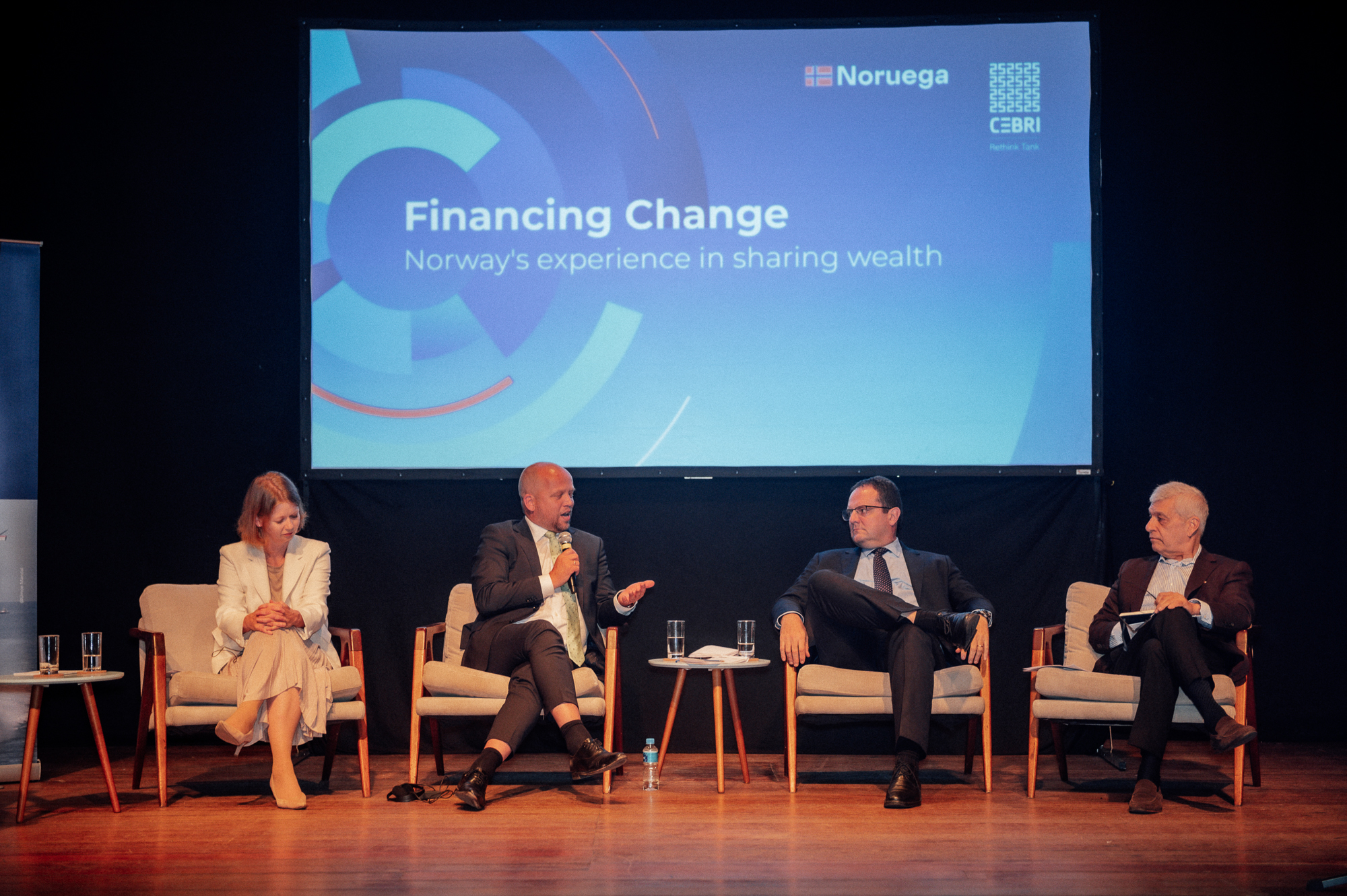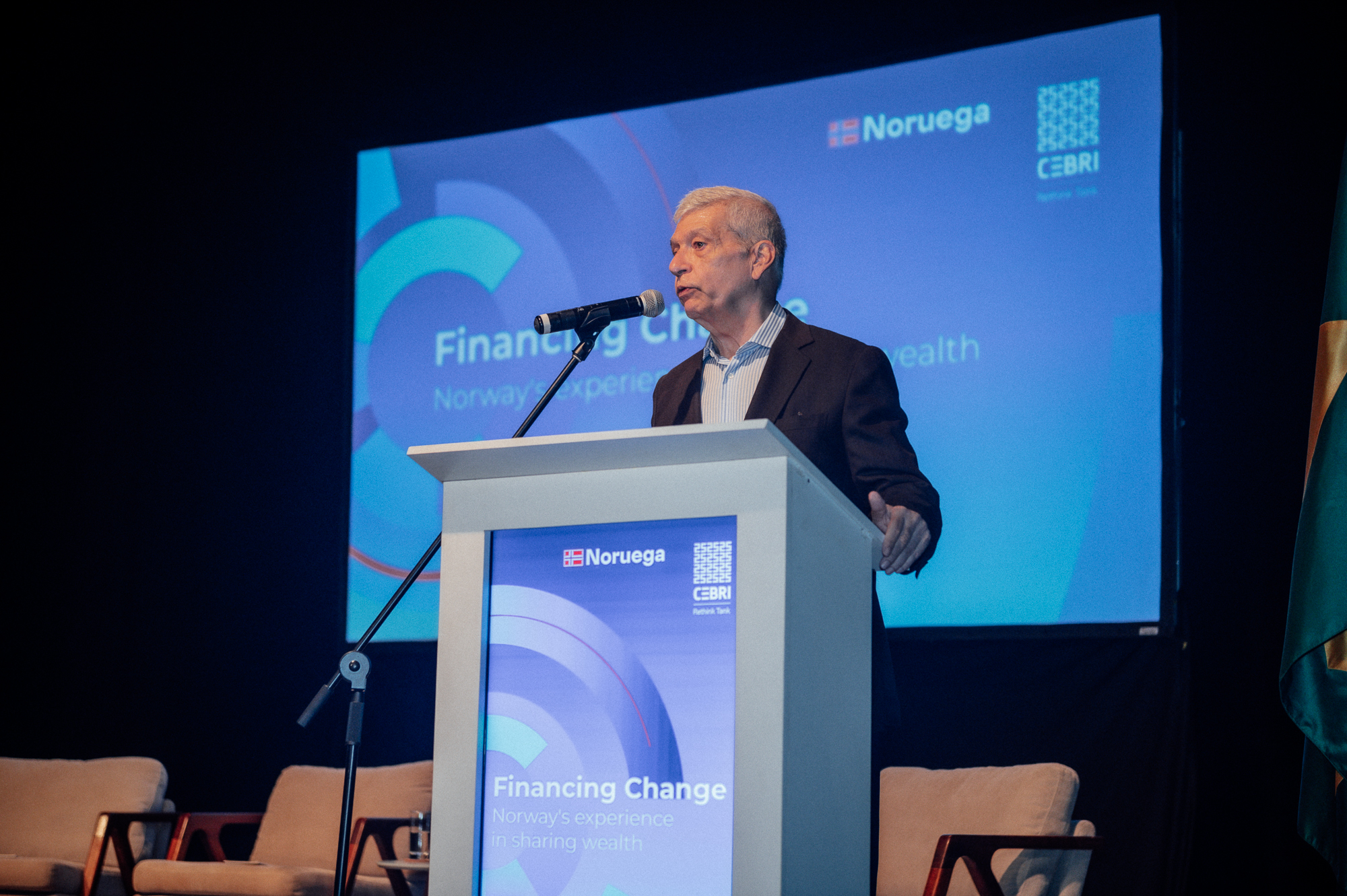Side Event G20 Brasil “Financing Change: The Norway's Experience in Sharing Wealth"
- 24 july 2024
On July 24th, CEBRI and Royal Norwegian Consulate General in Rio de Janeiro promoted the Side Event “Financing Change: Norway’s experience in sharing wealth” at the Casa G20, in Rio de Janeiro. During the meeting at the G20 House in Rio de Janeiro, Norway's Minister of Finance, Trygve Slagsvold Vedum, and the Governor of the Central Bank of Norway, Ida Wolden Bache, discussed the management of wealth derived from natural resources. The Governor presented the Government Pension Fund Global (GPFG), which ensures the strategic and sustainable use of income from the exploitation of natural resources, benefiting both the present and future generations. In addition, the fund finances Norway's social welfare system, contributing to health, education, and infrastructure.
The model stands out for its responsible and sustainable investment approach, integrating environmental, social and governance (ESG) factors into its decisions. By diversifying assets globally, GPFG seeks to optimize returns and establish a solid financial legacy for the country. Nelson Barbosa, Director of Planning and Project Structuring at the Brazilian Development Bank (BNDES), highlighted the work of the Norwegian government in Brazil, being the first and largest investor in the Amazon Fund, which was created in 2008, inspired by the Norwegian model, to raise donations earmarked for non-refundable investments in preventing, monitoring and combating deforestation, in addition to the conservation and sustainable use of the Amazon biome forests.
In the context of the Brazilian presidency of the G20, inequality and sustainable development are priorities. “Learning from the Norwegian experience in managing natural resources for wealth redistribution and responsible investment is crucial for Brazil,” highlighted Débora Freire Cardoso, Undersecretary for Fiscal Policy at the Ministry of Finance.
CEBRI has an active cooperation agenda with the Norwegian diplomatic network and Innovation Norway in priority areas between Norway and Brazil, including carbon capture, use and storage (CCUS), wind energy and decarbonization of the maritime sector. In addition to the Norwegian representatives and the participation of the Brazilian government, CEBRI was represented by the International Advisory Advisor, Ambassador Marcos Caramuru, who led the opening and moderation of the discussion.


